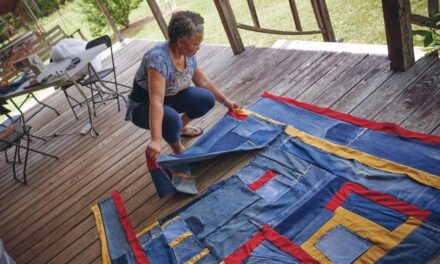
By LaKeisha Fleming
Women make up 52 percent of the Black population in the United States, with over 21 million women. Each has her own unique characteristics and personality, her own thoughts and feelings. Yet we often are lumped together under the banner of the Strong Black Woman.
You see the Strong Black Woman stereotype in movies and on TV. She doesn’t put up with any nonsense from other people. She holds others accountable for their actions and has her own strong ethics and values. She is also a nurturer who takes care of others, a giver who rarely thinks of herself. She has fought her way through tough circumstances and survived to tell the story. She can hold it all together without help from anyone else.
This superwoman description sounds noble, but it’s not realistic. Or attainable. Or healthy.
Being strong actually means you know how to take care of yourself. That is a quality all people—not just Black women—aspire to have, but being held to the standard of what people perceive a strong Black woman to be can prevent you from taking care of yourself. You can be proud of your strength and determination as a woman of color, but also express your vulnerability, not let yourself get trapped by labels from other people, and be kind and good to yourself.
The Mental Health Sting of Being a Strong Black Woman
The damage of the Strong Black Woman stereotype actually starts long before a Black girl becomes a woman. Research shows that young Black girls are frequently seen and thought of as stronger, older, and more knowledgeable about the world around them than their white peers, and that plays out in how Black girls are supported—or not—in school.
Young girls of color and their white peers who have the same misbehaviors in class are treated very differently. Black girls are more likely to face severe penalties and are up to 10 times more likely to be suspended from school. Another study found that police used excessive force against teenage girls of color. The data doesn’t directly link the harsh treatment of Black girls to the stereotype, but it’s clear that the Strong Black Woman perception impacts their reality.
As a Black girl, you can grow up feeling like the only choice you have is to present yourself as strong and determined. You start to see struggle as a necessity. Asking for help isn’t an option because you don’t want to look weak. You may have never seen another Black woman ask for help. So you suffer in silence. You try to do it all and spread yourself too thin. And we all know overworking and excessive stress and pressure are not good for anyone’s mental health.
The irony is that if Black women show strength in advocating for themselves, they can be perceived as angry, fueling the Angry Black Woman stereotype. The hypocrisy and confusion of not being sure how to act can lead to frustration and hopelessness, and it’s mentally exhausting.
A study found that almost half of the Black female participants had symptoms of depression, and 10% of the women said they also had a history of suicidal thoughts. One in 10 Black women feel like everything they do takes tremendous effort.
Feeling the burden of having to do it all takes a toll.
It can be hard enough being strong for yourself without the burden of having to be strong for everyone else. Here are some tips for not getting trapped by the Strong Black Woman stereotype.
Tips to Avoid the Strong Black Woman Stereotype
Give yourself permission to feel.
No matter how people expect you to act or think you should behave, you deserve to have your own feelings. You deserve to be strong, as well as have moments of vulnerability—and you deserve to be supported in those times. Just because someone else has painted a picture of you in their mind, it doesn’t mean you have to give in to it.
If you need help, ask for it.
Asking doesn’t make you weak or incompetent—it’s the opposite. Asking for help is a sign of strength and self-awareness. Pushing back on the misconception that you shouldn’t ask for help is a good place to start. Receiving help when you need it is what will actually keep you strong.
Talk and share.
Talking to someone about your feelings can give you clarity and insight, and help you feel validated and supported. You feel seen and heard when someone listens, cares, and lets you know your voice matters. Whether it’s with a caring, supportive friend or family member or even a therapist, talking about your problems can help lessen the burden.
Take care of yourself.
If you already know the practices that ground you, give you space, and help you get in touch with yourself, make them non-negotiables. If you haven’t had the time and space to focus on what supports you, experiment. Some ideas to get you started:
Once you find some practices that make you feel good, work them into your life on a daily or weekly basis. And remember to do the basic things that benefit all of us, such as getting enough sleep and eating balanced meals.
Brainstorm ways to keep from getting caught up in others’ expectations.
It could look a lot of different ways, including journaling, keeping Post-it notes of positive affirmations on your mirror, or creating a mantra for yourself that you can repeat when someone shakes your commitment to being true to yourself.
Building up your confidence can help you feel less swayed when someone approaches you with negativity while you’re trying to prioritize yourself. Remember that you don’t owe anyone a response. If others try to make you feel undeserving of compassion, too emotional, or not strong enough, you don’t have to explain anything to them. Instead, get mental health support if you need it, whether it’s by talking to a friend or seeking a professional therapist.
Learn how a culturally competent therapist can help and how to find one.
Being a person of strength is a good thing. Being a person who accepts help and allows herself to be vulnerable is also a good thing. And not allowing anyone else’s attitudes or thoughts to define you is a great thing.




